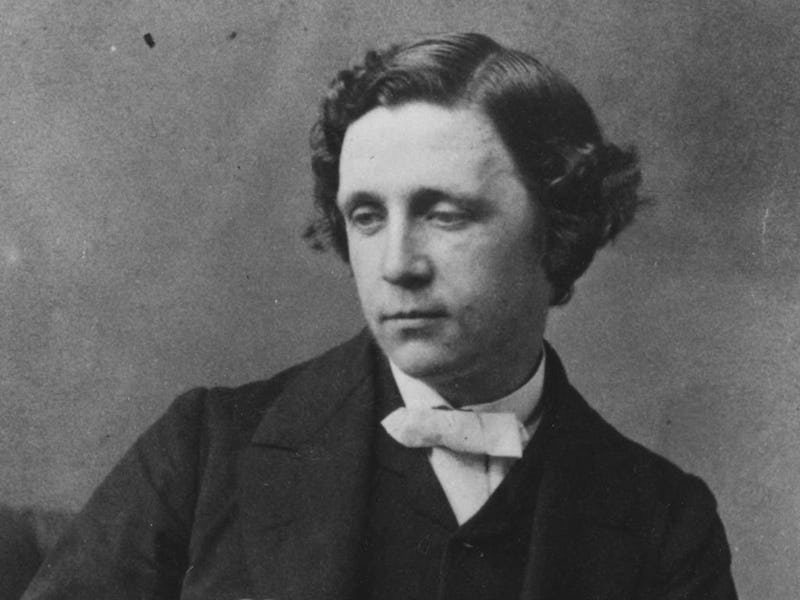Lewis Carroll's Wise Words About Email Writing
The 'Alice in Wonderland' author was onto email etiquette in 1890.

Lewis Carroll may have penned the first email manifesto, way back in 1890, as “Eight or Nine Wise Words About Letter Writing,” which contrary to its title is more than a 19th-century tweet. The author of Alice in Wonderland and countless letters was at the time of this essay nearing 60. He was an accomplished and pioneering photographer, one of the most famous creative minds in the world, and yet what stands out in this short guide is the humility toward the reader, an implicit reminder that the writer’s every choice and habit should be directed to the person who would receive and open his message.
Here’s what he had to say to you, harried Gmail user:
Write Legibly. This may not apply directly to emailing, but there is something to this rule and our modern ways of communication. Legibly in modern cases could refer to using, well, actual words. U dnt need 2 shorten things just 2 do it b/c it looks absurd. You are a full-grown adult, with many words at your beck. Use them in good stead.
Resist, along the way, the urge to tinker with fonts. Just ask Cleveland Cavaliers President Dan Gilbert about comic sans.
Don’t fill up your letter with apologies for not having written sooner. Don’t send sorries for being tardy. Whomever you’re emailing, no matter the subject, they don’t care about the labor pains. Show them the baby.
Don’t Repeat Yourself. You are writing, not speaking, so what’s the point of writing the same thing twice? (This would go doubly, as it were, for any apologies.) Once it is written down, it is visible and will always be as such.
When you have written a letter that may have irritated your friend, however important you feel it may be, set it aside and wait a day before reading it again and imagine it was sent to you. Ah but if only emailers took this to heart! The speed of email means diplomacy often suffers between the brain and the page (or screen in this case). Sarcasm emailed is instantly vitriol. Detaching from your immediate emotions allows you to assess a situation. For all the raw, sneering pleasure that comes from writing through a rage, what point is there, exactly, in hitting “send” angry?
Don’t try and have the last word. The winner of any pissing match invariably winds up with wet, smelly hands.
If you should ever decide to write, jestingly, in dispraise of your friend, be sure to exaggerate so that the jest is obvious. Biting wit on a screen carries more hateful connotation than spoken when. When in doubt, be ABSO-FUCKIN’-LUTELY OBVIOUS that you’re JUST KIDDING if you’re going to rip into your reader. Ya idiot.
We are all in a hurry, I assure you, but that is no excuse to allow your own integrity drift out to the sea of lazy correspondence. Though I’m afraid there will be no saving texting via etiquette rules scribed in the centuries past. Not even Carroll, a dynamo of imagination, could’ve predicted the rise of poop emoticons.